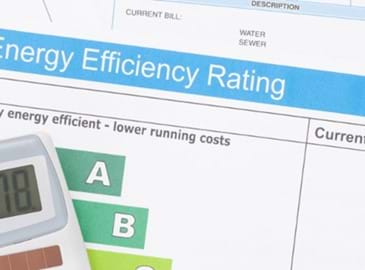7 tips to save money on small business bills
Here are a few tips to help you along with the process and get you saving cash on your bills…
Business Growth
Undoubtedly one of the most difficult issues that small businesses face today is that of late payment. This is a real pain point for many SMEs across the UK and is frequently cited as a significant factor in preventing enterprises from fulfilling their potential. It's a complex and often sad state of affairs where businesses can find themselves waiting for weeks on end to receive payment from an individual or an organisation. Earlier this year, insurance firm Zurich published some harrowing statistics, which stated that one in five small firms were currently owed £25,000 or more and one in ten were waiting for payments of around £100,000.
Not exactly good reading. But there are ways to not only mitigate the scourge of late payment but tackle it head on. It is unjust that small business owners should be hit this hard because larger suppliers take too long to pay. Here are some ways in which you can be prepared for potential late payment issues.
Before you enter into any type of arrangement with an external party, it's vital that you do some basic research. Platforms such as Experian and Check my file are excellent at looking into the payment history of other companies. This gives you the opportunity to know exactly what you're getting into. If a potential client has a low credit score and a history of paying late, it would probably be a wise idea to avoid this scenario all together.
Whether this is 30 days, 15 days or even 10 days, make your payment terms as clear as possible. State that you have a right to charge interest on overdue payments (see the late payment of commercial debt act). Whilst this may not guarantee prompt payment, it will certainly encourage earlier payment and show that you are aware of your rights. Make sure you include these payment terms on each and every invoice that you send.
Another way to discourage late offenders is by making it as easy as possible for payment to be made. This will give your client less excuses if they are late. You should consider setting up a PayPal account - a nice and quick way to be paid promptly as it can also be done via mobile. Why not send recurring invoices on a certain day each month (if they are a regular client). In turn, your client could send up an automatic payment on their side. This could save both of you a lot of time and ensure that you get paid quicker.
Be firm, without getting angry. If a client has not paid to the time they agreed, make sure that they are made aware of it. Ensure that you have a contact at the company and that you follow up with a string of communications to remind them that payment is due. If that doesn’t work, you have every right to be a bit more forceful in your tone. It’s important to be as visible as possible so that you cannot be ignored.
How about rewarding early payment: this is a useful tactic to deploy as it doesn’t involve angry emails and chasing. Offer discounts for early payment as a reward for customers who are prompt. There is nothing quite like offering a reward for doing something quickly and it's a great way to settle your cashflow. There are plenty of sites where you can track payment in real time such as Xero, Clearbooks, Intuit and Zoho. It's worth considering doing this as another method to negate the possibility of late payment.

Here are a few tips to help you along with the process and get you saving cash on your bills…

Take a look at this list of grants that could help businesses looking to set up on their own...
Payzone Bill Payments Limited Registered Office: 100 Wood Street, London, England. EC2V 7ER. Registered in England and Wales No. 11310918 VAT Number: GB 172670502. Payzone site uses cookies. Some of these cookies are essential, while others help us to improve your experience by providing insights into how the site is being used. View our Cookie Policy and our Privacy Policy.




Cert No. 9819